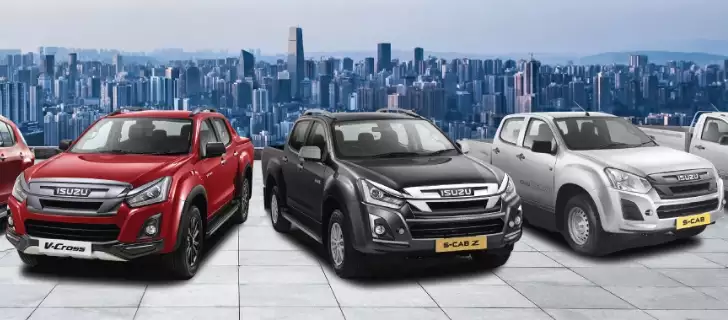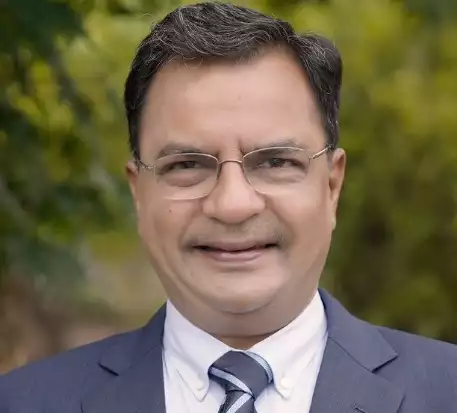Is Isuzu planning some stealth martial arts like moves for India?

“This year, we will be making around 25,000 vehicles, out of which 20,000 vehicles we will supply to GCC (Gulf Cooperation Council) countries, and around 2000 to the nearby countries,” Rajesh Mittal, President and MD, Isuzu Motors India, told ETAuto. The 25,000 vehicle sales target is 25% more than the OEM’s sales last year.
So far, it’s been largely a make in India export story for Isuzu, and that’s because the Indian market turned out to be quite different than the expectations. Isuzu got the market potential part right, but didn’t quite read the high price-sensitivity of the Indian market well enough. That led to the company, which invested INR 1,500 crore to set up a plant in Sri City, Andhra Pradesh, to leverage the base for exports.
| Top 5 CV exporters (Apr - Sept '24. In units) | Top 5 domestic CV OEMs (Apr-Sept '24. In units) | ||
| Isuzu | 9,745 | Tata Motors | 158,464 |
| Mahindra & Mahindra | 8,496 | Mahindra & Mahindra | 127,037 |
| Tata Motors | 7,833 | Ashok Leyland | 83,874 |
| Ashok Leyland | 5,644 | Volvo Eicher Commercial Vehicles - Eicher | 37,014 |
| Volvo Eicher Commercial Vehicles | 2,322 | Maruti Suzuki India | 16,431 |
“Serious” about India
With sales of around 2,700 units (2,200 D Max commercial pick-ups, 500 V-Cross lifestyle pick-ups) in FY24, India is still quite a small market for Isuzu, which sold around 670,000 vehicles globally last year. However, the Japanese major is “serious” about India, according to Mittal. It now trains its focus on building the India base. “We are trying to make new products, so we'll be investing for that,” says Mittal.
While it led the CV pack in exports during the first half of this financial year, Isuzu ranked a low seventh position in the domestic market during the same period. To read, understand, and draw strategies for the highly competitive Indian market better, Isuzu also made a first-of-its-kind move by a Japanese OEM by appointing an Indian in the top post for the India business.

Before introducing a new model more tailored for the Indian market, Isuzu plans to shift to full local production, from the current assembly of CKD (Completely Knocked Down) kits. “We haven’t localised the powertrain, but we are now thinking of localising the powertrain in India,” says Mittal. This may be a 2-3 year project.
Over the past 10-12 years, Isuzu has cumulatively sold 30,000 vehicles in India. The target for this year is to sell 4,000 vehicles in the domestic market.
SUV, Lifestyle pickup to remain
Even as commercial vehicles remain its core for India too, Isuzu says it isn’t giving up on the SUV and Lifestyle pick-up segment. Its MU-X SUV, which competes with the Toyota Fortuner globally, didn’t succeed in India. A faster than expected shift to BSVI, COVID, and swift moves by competition hampered the model’s prospects in India. After a couple of failed attempts, Isuzu is likely to bring the next generation MU-X into India for a better chance at success in the growing SUV space.
“We are looking at our strategy for the future, and we will give you some good products going forward,” says Mittal. With the Indian business being profitable, and heading for a possible hattrick year of new profit, Mittal and team may have more bargaining power for funds to invest in new projects. Last year, Isuzu Motors India clocked a turnover of INR 3,000 crore, which it hopes to climb to INR 3,500 crore this year.
New technology
In the new technology space, Mittal says Isuzu is “working on all technologies”, and it has entered the EV space in Japan, and in a few Nordic countries. “A lot of work is happening on advanced technology. But the important thing is everyone has to be mindful about investing at the right time,” says Mittal, who also believes that diesel technology will rule the roost in the commercial vehicle industry for some time to come.
With the strategies brewing in Isuzu Motors India, could the Japanese OEM make some stealth martial arts like moves next in the highly competitive but highly promising Indian market?

